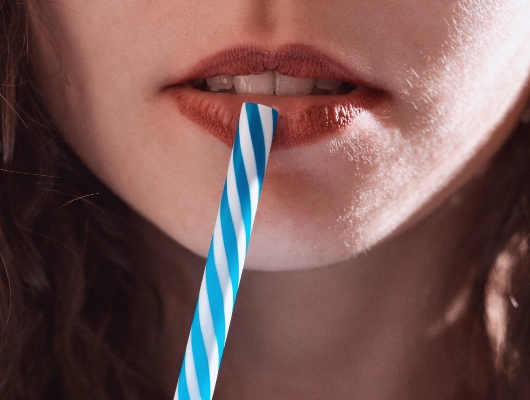SmilefromXwhite
Blog Stories
Sensitive teeth
and what about them
- 14.04.2022. SmilefromXwhite
Did you know that 1 in 8 people has a problem with sensitive teeth? You are not alone.
Have you ever felt pain when consuming a cold drink or hot food? If so, you are not alone. Although pain caused by hot or cold food and / or drink can be a sign of caries, it is also common in people who have sensitive teeth.
Tooth sensitivity or dentinal hypersensitivity is a sudden and sharp pain in the teeth that lasts for a short time and occurs as a typical response to various stimuli such as hot, cold, sour foods.
So what causes tooth sensitivity? Can sensitive teeth be prevented, avoided and treated? Read below.


What causes the sensitivity of your teeth and how do you help yourself?
Tooth sensitivity can develop over time and can be the result of one or even the following causes. Here are some reasons why you may feel pain while eating food that is too hot, cold or maybe even sour.1. Excessive brushing
Teeth should be brushed twice a day, but not by brushing too hard, as this will damage the enamel and may cause the gums to retract. Therefore, it is important to use a soft brush and brush your teeth with light circular motions.2. Too much sweet food and plaque
Sweet and sour foods and drinks as well as carbohydrates stick to teeth and stimulate plaque buildup and cause tooth decay, eroding the outer layer of enamel and entering the dentin. Food and beverages such as juices, sweets, citrus fruits and cakes can be especially bad for your enamel. When enamel is damaged, the layer of dentin beneath it is exposed, and unlike enamel, dentin is a softer and more vulnerable layer. Dentin contains small hollow canals that become exposed and allow heat and cold or acidic or sticky food to reach the nerves and cells inside the teeth and then hypersensitivity occurs.3. Flossing
Use dental floss once a day, as floss cleans places where the toothbrush can’t. This prevents tartar buildup between the teeth as well as along the gums / neck of the tooth which will help reduce tooth sensitivity.4. Bruxism
Gritting your teeth or bruxism is clenching or gnashing your teeth during sleep known as nocturnal bruxism caused by stress and stressful life periods. In addition to jaw pain that can occur as a result of gnashing teeth and jaw clenching, you may notice sensitivity. Bruxism can cause numbness of the tooth surface, wear of enamel, and if it is severe enough, even cracked and broken teeth. Such teeth are likely to feel highly sensitive to temperatures, sour or sweet foods and other factors.5. Mouthwash
When it comes to mouthwash, choose an alcohol-free mouthwash, as it will irritate sensitive teeth less.6. Damaged tooth
Sensitivity and pain can occur with a cracked or chipped tooth, as well as with worn fillings and crowns. If you suspect a damaged tooth, consult your dentist.7. Visit your dentist regularly
Visit your dentist twice a year for prevention and regular monitoring of dental condition and oral health.How to reduce tooth sensitivity?
There are simple ways to reduce tooth sensitivity, as well as ways you can prevent them from deteriorating or appearing in the future. In general, the best way to protect your teeth from sensitivity is to follow a simple, daily oral care ritual. This should always include gently brushing your teeth, twice a day, with toothpaste for sensitive teeth. Also, flossing and using an alcohol-free antiseptic mouthwash can help protect your enamel from thinning and teeth from decay.14.04.2022. SmilefromXwhite
Sensitive teeth and what about them?
Have you ever felt pain when consuming a cold drink or hot food? If so, you are not alone. Although pain caused by hot or cold food and / or drink can be a sign of caries, it is also common in people who have sensitive teeth.
- 14.04.2022. SmilefromXwhite

